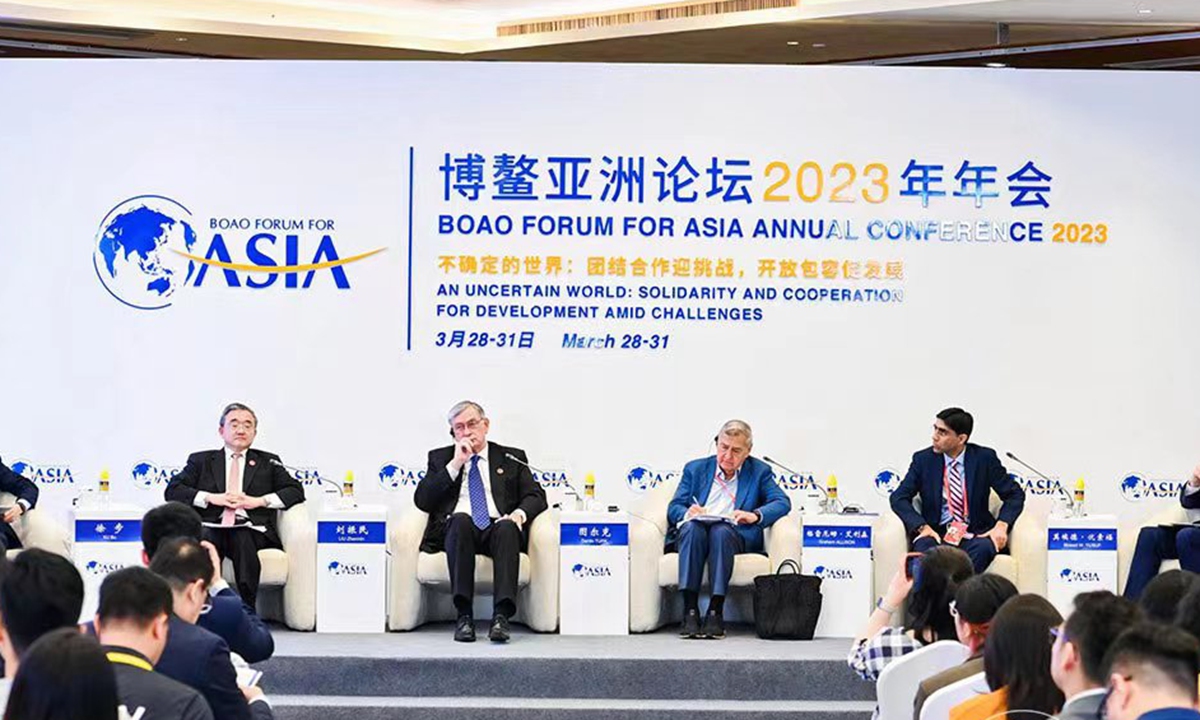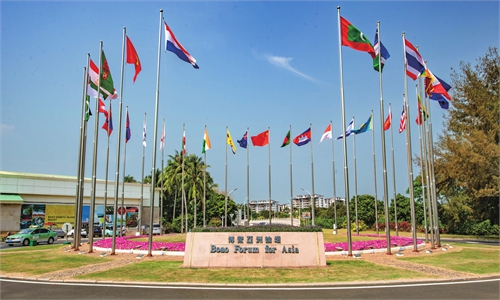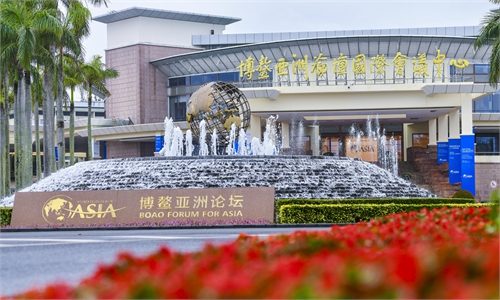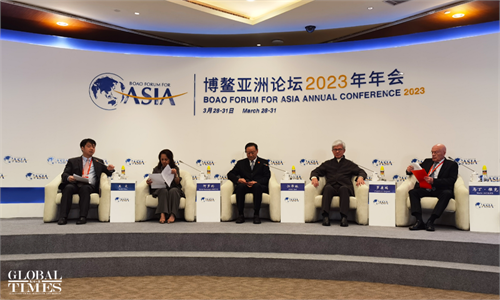In Boao, Asian officials, experts urge to advance regional integration, as US tries to split region
At BFA, officials, experts warn against forming small cliques

Boao Forum for Asia Annual Conference 2023
Asian officials and top experts on Wednesday called for efforts to safeguard and advance regional economic integration, which they say is crucial for regional and global peace and prosperity, as they warned against the dangers of rising major power rivalry and tension.
At the annual meeting of the ongoing Boao Forum for Asia (BFA) in Boao, South China's Hainan Province, many speakers also offered resounding opposition to the US' intensifying push for a so-called economic decoupling, though most did not specifically name Washington.
During a speech at a panel discussion, Zeng Peiyan, vice-chairman of the BFA's Council of Advisors, noted that "certain countries" are constantly stirring up tension and pushing for an economic "decoupling" and broken supply chains. He warned of the threat of such an attempt for regional peace, stability and prosperity.
"We should replace self-importance and dominance with communication and openness. We should especially oppose taking sides and forming small groups and cliques," Zeng said, "We, Asians, remember vividly the wounds of both cold and hot wars. We know how precious peace and stability is and how important development is."
Such a call was echoed by many at the BFA's annual meeting, where regional economic cooperation and integration is a major theme, while dire warnings of rising economic and geopolitical tension were also ubiquitous.
Speaking at the panel on Wednesday morning, Kao Kim Hourn, secretary-general of the Association of Southeast Asian Nations (ASEAN), warned against rising major power rivalry that could, he said, escalate into war and an arms race in areas such as conventional and nuclear weapons as well as cybersecurity.
"Competition and escalating tensions are major security challenges," Kao said, stressing that ASEAN must ensure that it does not become "a proxy" of any party or parties in a major power rivalry.
Kao said that ASEAN will continue to hold consultations and dialogues with various countries, including China and the US, and urged regional countries to seize the golden opportunity offered by the BFA to enhance regional cooperation in trade, investment and other areas.
At the meeting, where US officials are notably absent, US attempts to split supply chains among its allies and perceived rivals are constantly referred to, even though many refrained from calling out the country. For instance, the US' so-called Indo-Pacific Economic Framework (IPEF) is also drawing attention among Asian officials as to how it will affect regional cooperation.
Asked by the Global Times on the sidelines of the BFA meeting about whether the IPEF will create more competition in Asia, Sok Sopheak, secretary of state of Cambodia's Ministry of Commerce, said, "to some extent."
"I'm not sure whether the purpose of the IPEF is to challenge the Belt and Road Initiative," Sok said, noting that "we are not a member" of the IPEF and though some ASEAN members are members, the "ASEAN centrality is still there." ASEAN tries to be a center for consolidating and synergizing these initiatives.
While risks and challenges persist, Asia's regional economic integration has continued to advance, according to a flagship annual report of the BFA released on Tuesday.
Many also pointed to the Regional Comprehensive Economic Partnership (RCEP), the world's biggest trade pact, which came into effect last year, and other regional trade deals to highlight regional economic integration. More countries are set to implement the deal, including the Philippines, where it has recently been ratified, and Indonesia.
As part of the efforts to further promote regional cooperation, members should not only better carry out the deal in trade and other areas but also attract more countries to join and further upgrade the deal, said Zhang Yuyan, director general of the Institute of World Economics and Politics at the Chinese Academy of Social Sciences.
"We shouldn't just maintain the current level. We should actually upgrade it," Zhang said at the panel discussion on Wednesday morning.




